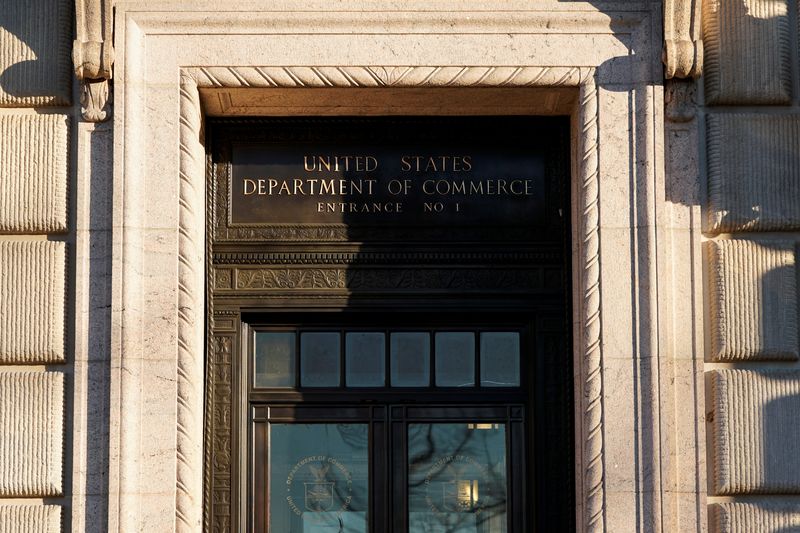By Stephen Nellis
(Reuters) - A bipartisan group of U.S. lawmakers on Monday urged the Department of Commerce to examine national security threats from China's development of silicon photonics technology, a fast-developing field that could speed up artificial intelligence.
At its core, silicon photonics relies on light, rather than electrical signals, to move information inside of computer systems and has uses in artificial intelligence systems where tens of thousands of computer chips are connected. Leading AI chip firms such as Nvidia (NASDAQ:NVDA) and Advanced Micro Devices (NASDAQ:AMD) have published research on how to integrate photonics into their chips, while Silicon Valley startup Lightmatter recently raised $400 million for its photonic technology, pushing the firm's value to $4.4 billion.
China has also been aggressively pursuing the technology, with Guangdong province in recent weeks joining a spate of funding programs aimed at building photonics chips in China, according to state media.
The U.S. House of Representatives' select committee on China on Monday asked the Commerce Department to examine what threats China's work on photonics might pose and whether export control rules should be amended to protect U.S. efforts.
"The dual-use nature of photonics technology makes it particularly susceptible to military end-use diversion by problematic actors," Representatives John Moolenaar, a Republican, and Raja Krishnamoorthi, a Democrat, wrote in their letter.

"China has been perhaps the quickest state actor to mobilize the resources and encourage local and regional governments to work on photonic technology," Sunny Cheung, an associate fellow for China studies with the Jamestown Foundation who has studied China's efforts, told Reuters.
"We've received the letter and will respond through the appropriate channels," a Commerce Department spokesperson said.